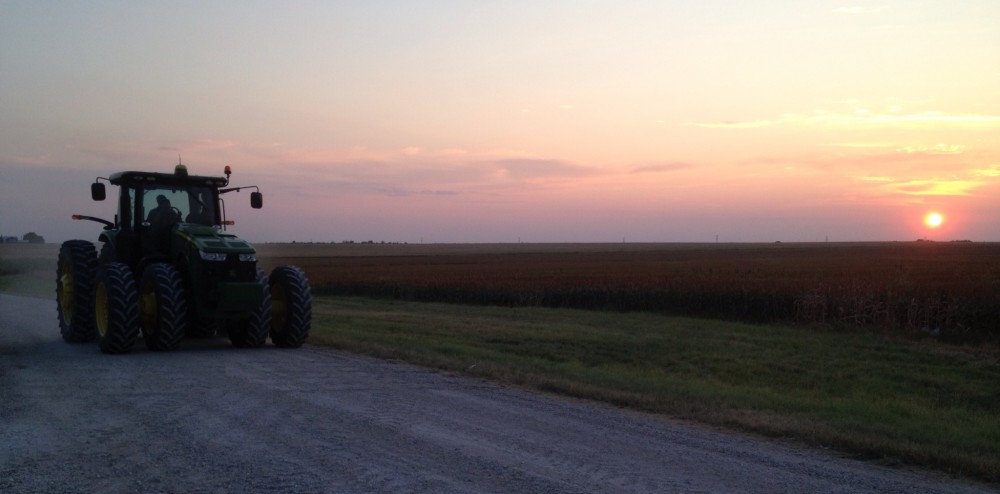Yesterday was gorgeous in Dallas. The high temperature was 83 degrees Fahrenheit (28.3 Celsius) with low humidity and bright sunshine. Overnight, the low was 60 degrees Fahrenheit (15.5 Celsius). After the long hot Texas summer, my definition of the change to milder and more pleasant weather is when the overnight temperature dips below 70 Fahrenheit (21.1 Celsius). It did that, fall was in the morning air, and the timing could not have been better. Yesterday, September 22, 2013 was the first day of autumn.
Yesterday was the autumnal equinox. “Equinox” is a conjunction of the Latin words “aequus,” meaning “equal,” and “nox,” meaning night. Equinox is short-hand way to say the length of the night is equal to the length of the day. This happens only twice in our year: once on the first day of fall (autumnal equinox) and once again on the first day of spring (vernal equinox). On those two days, the sun is directly over the equator. When this happens, the Earth is not tilted away or toward Sol, our sun, and the length of the day is the same at all points on the Earth’s surface.
For the Northern Hemisphere, this means the cool days are arriving. On the autumnal or fall equinox, our Sol is heading due south and away from us. On that day, it passes directly over the mid-section, the equator, of our globe. Although I welcome the pleasant weather with the top down on the convertible and my wife’s hair blowing in the moderate winds and basking sunshine, there is, nonetheless, a sadness in the air for us Northerners.
Perhaps it was around the first day of autumn in 1933 that Oliver Hood wrote the words for “You Are My Sunshine” on the back of a brown paper sack:
You are my sunshine,
My only sunshine.
You make me happy
When skies are grey.
You’ll never know, dear,
How much I love you.
Please don’t take my sunshine away.
You told me once, dear
You really loved me
And no one else could come between
But now you’ve left me
And love another
You have shattered all my dreams;
You are my sunshine,
My only sunshine.
You make me happy
When skies are grey.
You’ll never know, dear,
How much I love you.
Please don’t take my sunshine away.
There is a decidedly melancholy lilt to this famous tune about our sunshine going away. The song was appropriated by Jimmie Davis, who used the winsome country and western lyrics to sing his way to the governorship of Louisiana in 1944 and 1960. Today, it is one of the state songs of Louisiana and has been recorded by numerous artists, including Bing Crosby, Gene Autry, Ray Charles, Aretha Franklin and Johnny Cash, to name just a few. In fact, the song has become so popular and so sung that it is no longer considered country. It is now a part of our culture. The sun leaving and our skies turning grey with the encroachment of winter are a part of us. We shall miss your bright rays and appreciate the comforts of the lingering fall as we watch our sunshine depart for the South.
On the other side of winter is the vernal or spring equinox. On that day, March 20, 2014, Sol, our sun, again crosses the equator, but this time on his way back North. Having enjoyed his six-month sojourn to the lands and waters of the Southern Hemisphere, he returns. On that bright day, we will lift our eyes to the skies and raise our voices with the Beatles in the 1969 song written by George Harrison, “Here Comes the Sun,” considered by many to be the most famous sun song ever:
Here comes the sun, here comes the sun
And I say it’s all right
Little darling, it’s been a long cold lonely winter
Little darling, it feels like years since it’s been here
Here comes the sun, here comes the sun
And I say it’s all right
Sun, sun, sun, here it comes
Sun, sun, sun, here it comes
Sun, sun, sun, here it comes
Sun, sun, sun, here it comes
Sun, sun, sun, here it comes
Little darling, I feel that ice is slowly melting
Little darling, it seems like years since it’s been clear
Here comes the sun, here comes the sun
And I say it’s all right
Here comes the sun, here comes the sun
It’s all right, it’s all right
As the sun turns and moves so do we. For those of us to the North, it is with a happy sadness we watch him leave in fall and a welcome gladness we await his return in spring. I think it the same for those in the South, just reversed in their times. We greet each equinox for the change it brings, and between the two we learn to appreciate well the next as it approaches.
You are my sunshine, please don’t take my sunshine away.
I know you won’t.
Here comes the sun, it’s all right, it’s all right, here comes the sun.
And may it always be so,
Grandpa Jim
